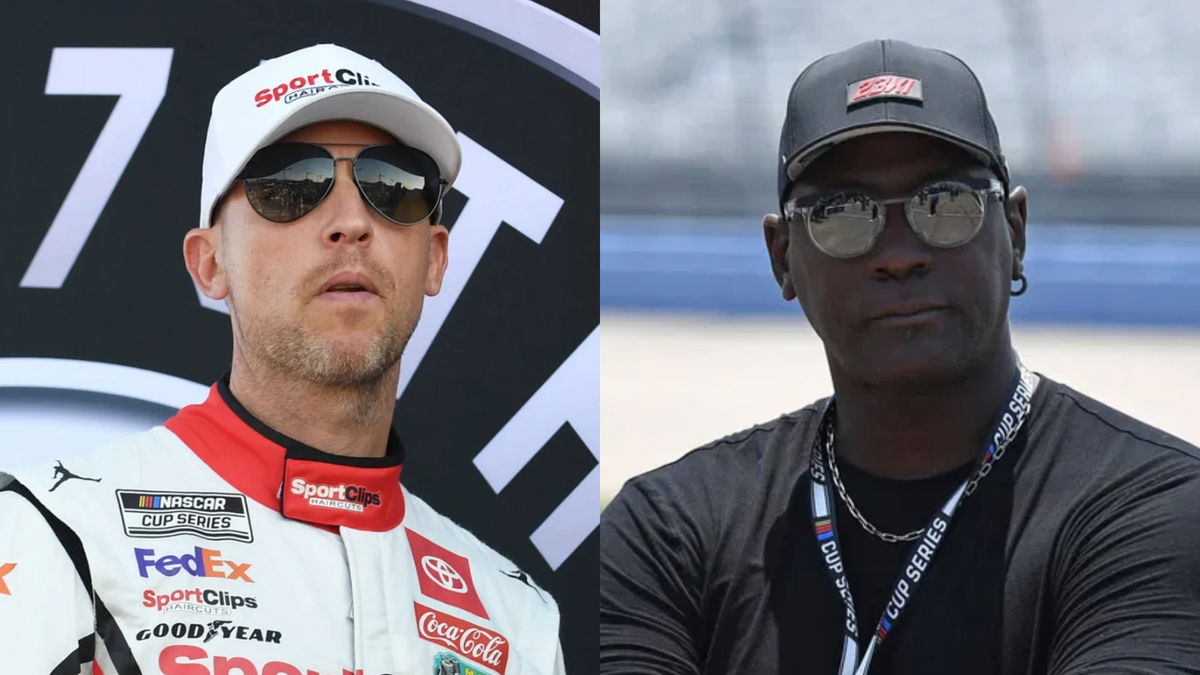
Imago
Image Credits: Imago

Imago
Image Credits: Imago

Imago
Image Credits: Imago

Imago
Image Credits: Imago
The NASCAR world is buzzing with tension as the antitrust lawsuit between 23XI Racing, Front Row Motorsports, and the sanctioning body heats up. With Michael Jordan as a key owner in 23XI, the stakes feel personal for fans who admire his competitive drive. Teams have been racing as open entries since July, after a court overturned their chartered status, leaving everyone wondering about long-term stability. And the fight has just escalated further.
Watch What’s Trending Now!
Charter agreements, which guarantee race spots and payouts, sit at the heart of this battle, signed by most teams, but not these two holdouts. Discovery has uncovered documents that paint a picture of power imbalances, raising questions about fair play in the sport. As a hearing looms on August 28, the pressure mounts for a resolution. So, what’s the latest move that’s got everyone talking?
Teams’ dire warning amid lawsuit drama
Bob Pockrass shared on X that 23XI and Front Row Motorsports have fired back in their reply to NASCAR’s opposition, calling it “a brazen effort to deny reality” and pointing to “smoking-gun documents” where NASCAR allegedly saw new entries as threats. This comes as the teams push for an injunction to block charter sales, fearing irreversible damage. In the filing, they emphasize that without charters post-2025, operations become unsustainable, echoing a prior court finding on the economic unviability of long-term open racing that NASCAR didn’t appeal.
23XI/FRM filed reply to NASCAR’s response last week to injunction request. 23XI/FRM: “NASCAR’s Opposition is a brazen effort to deny reality … It is striking in its failure to even address most of the smoking-gun documents that admit NASCAR viewed competitive entry as a threat”
— Bob Pockrass (@bobpockrass) August 25, 2025
The plea highlights how charters ensure purse money and sponsor appeal, critical for team survival in a high-cost series. Michael Jordan and co-owners argue that selling these assets now could complicate any future win in the December trial, potentially forcing shutdowns. As Pockrass noted in another post, the teams warn they’d be “out of business after 2025” if NASCAR proceeds, underscoring the urgency ahead of the hearing.
This stance builds on the lawsuit’s core, filed on October 2, 2024, claiming antitrust violations through NASCAR‘s control over tracks and suppliers. By refusing the 2025 agreement, which boosted payouts by 62%, the teams seek better terms but risk everything. Their filing insists on racing six cars with full rights until resolved, showing a fight for equity in a family-run empire.
With the courtroom battle intensifying, attention turns to how the teams are framing their demands. Let’s dive into their clear position on those charters.
Stance on charter sales clarified
23XI and Front Row Motorsports laid out their demands plainly in recent filings, seeking to halt NASCAR from disposing of charters for cars like the No. 23, 35, 45, 4, 34, and 38. They argue this prevents harm while the case unfolds, insisting on full chartered participation for their six entries. The move counters NASCAR’s plans to open bidding, which could lock out these teams for 2026.
In their reply, the teams stated, “NASCAR’s Opposition is a brazen effort to deny reality and avoid addressing the overwhelming evidence of its unlawful maintenance of monopsony power through anticompetitive acts.” This accuses NASCAR of ignoring evidence of blocking competition, tying into broader claims of one-sided deals. Such power, they say, forced teams into unfavorable terms, with redacted docs highlighting executive strategies to maintain control.
Proud of their evidence, the filing adds they have “no answer for the internal NASCAR documents with top executives describing how NASCAR used its monopsony power to impose a one-sided, [redacted] deal.” This builds their case for success on merits, stressing irreparable harm without relief. As the August 28 hearing nears, this clarification aims to sway the judge toward preserving the status quo.


